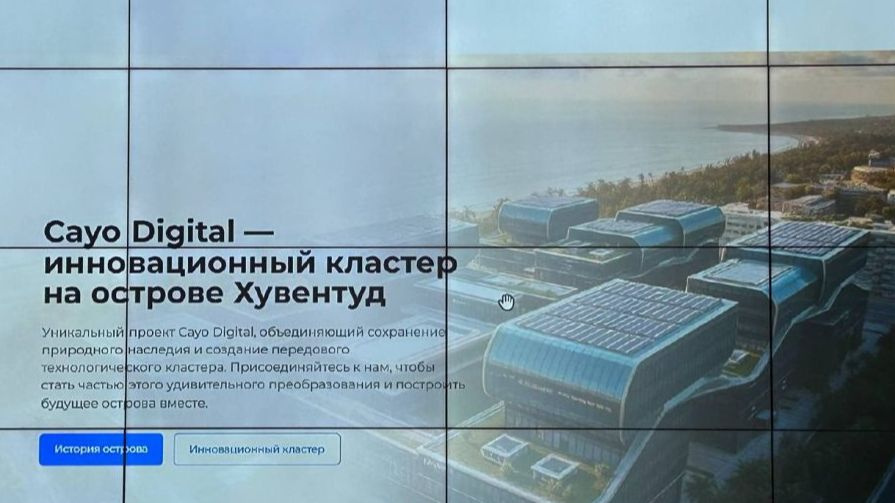The technology hub would host 12,000 experts and 3,000 students on the Isle of Youth, which generates only 18 MW despite having an installed capacity of 48 MW.

![]() 14ymedio, Havana, July 26, 2025 — The latest proposed joint-venture between Moscow and Havana calls for the creation of a technology hub on the Isle of Youth. The project, dubbed “Cayo Digital,” was presented by GenIT — a Russian company which has had a presence in Cuba since 2023 — and is backed by the Russian government. Its goal is to build a tropical “Silicon Valley” that would house some 15,000 residents, including 12,000 technical experts and 3,000 students, and would develop software and hardware for Latin America and the Caribbean.
14ymedio, Havana, July 26, 2025 — The latest proposed joint-venture between Moscow and Havana calls for the creation of a technology hub on the Isle of Youth. The project, dubbed “Cayo Digital,” was presented by GenIT — a Russian company which has had a presence in Cuba since 2023 — and is backed by the Russian government. Its goal is to build a tropical “Silicon Valley” that would house some 15,000 residents, including 12,000 technical experts and 3,000 students, and would develop software and hardware for Latin America and the Caribbean.
The state-run news website Cubadebate reports that the technology center would occupy some 450 hectares and would include offices, laboratories, educational centers, sports facilities and residences. The project is not expected to be completed until 2032, with initial operations to begin sometime between 2026 and 2028. However, the ambitious plan is at odds with the harsh realities of the environment in which it would take shape.
The Isle of Youth, where the project would be located, only generates 18 megawatts of electricity in spite of having a capacity 48 megawatts, which has led to frequent power outages. This situation is a reflection of a broader nation-wide energy crisis. Cuba generated only 14,334 GWh in 2024, a 25% drop from 2020. Widespread power outages, lasting for months, have affected most of the country’s provinces, including the island enclave where the digital hub is now planned.
The plan is reminiscent of previous proposed joint-venture projects between Cuba and Russia which never got off the ground
The fragility of the nation’s electrical grid is not the only obstacle. Internet connectivity remains limited, with frequent outages, slow speeds and high prices, jeopardizing any serious attempt to create a competitive digital ecosystem.
The announcement harkens back to previous initiatives between Cuba and Russia such as a plan to modernize the Cuban railway system. In spite of having generated any number of headlines, the project never advanced past the planning stage or had any significant impact on daily life. In this regard, analysts and independent media outlets such as 14ymedio have repeatedly pointed out that many promised Russian investments in Cuba have stalled, with no visible impact or concrete results.

The Cayo Digital announcement comes at a time when the island is experiencing one of its worst economic crises in decades, with energy shortages, low productivity, inflation and a stubborn decline in foreign investment. In this context, the proposed high-tech center stands in stark contrast with the unreliability of basic services, deteriorating infrastructure and the lack of resources to keep the country’s industrial plants operational.
In spite of all this, official media outlets celebrated the announcement as a sign of cooperation with one of the country’s chief geopolitical allies. To date, however, no details have been released regarding the project’s financing, nor have any technical or energy feasibility studies been presented.
While official rhetoric paints a picture of a futuristic, connected and technologically advanced Cuba, the reality is one of a country plagued by power outages, service disruptions, poor connectivity and uncertainty over similar previous promises.
____________
COLLABORATE WITH OUR WORK: The 14ymedio team is committed to practicing serious journalism that reflects Cuba’s reality in all its depth. Thank you for joining us on this long journey. We invite you to continue supporting us by becoming a member of 14ymedio now. Together we can continue transforming journalism in Cuba.
